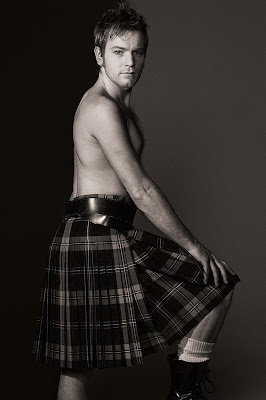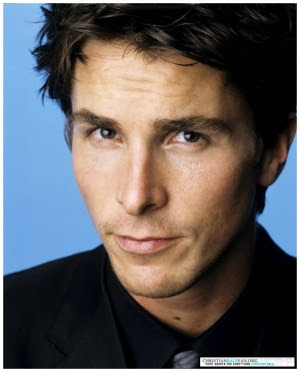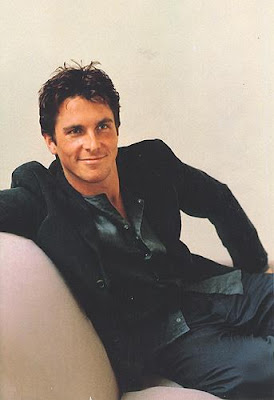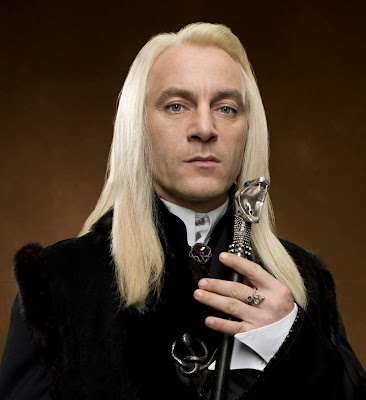Tuesday 30 October 2007
Every Second Counts
Monday 29 October 2007
Scottish Cheese 1



Friday 26 October 2007
Medical Romance
I only caught a snip on the way back from food shopping and was stunned to hear that a consultant psychiatrist from Dublin has been analysing novels with a medical romance theme and had written to ‘The Lancet’ – a well respected medical journal in the UK – with his findings.
My interest was piqued.
What gems had this medical professional uncovered in his scientific investigation to make it worthy of a slot on the BBC premium morning News Programme?
For your education and delight. Here are some SELECTED highlights from the letter by Dr Brendan Kelly from The Lancet 2007; 370:1482 [who of course own the copyright to the full text – but the article is available free of charge online to all who want to read it -*]
Medical romance
Brendan D Kelly at the Department of Adult Psychiatry, University College Dublin,
All novels contained heterosexual romantic plots in which both protagonists were involved in medical work.
All central male protagonists were doctors who worked in emergency medicine (six), primary care (six), surgery (five), obstetrics/neonatology (two), or paediatrics (one). 11 central female protagonists were doctors who worked in primary care, obstetrics/neonatology, training or residency programmes, surgery, anaesthesiology, or emergency medicine.
There was a marked preponderance of brilliant, tall, muscular, male doctors with chiselled features, working in emergency medicine; they were commonly of Mediterranean origin and had personal tragedies in their pasts.
These novels draw attention to the romantic possibilities of primary care settings and the apparent inevitability of uncontrolled passions in the context of emergency medicine, especially as practised on aeroplanes. These novels suggest that there is an urgent need to include instruction in the arts of romance in training programmes for doctors and nurses who intend working in these settings
*http://www.thelancet.com/journals/lancet/article/PIIS0140673607616316/fulltext
Any volunteers to provide instruction?
You have to laugh.
What's playing on my YouTube right now? The West Wing to Rod Stewart http://uk.youtube.com/watch?v=BuepGZeqvC4&feature=PlayList&p=4F1D642A6F9D7B46&index=41
Thursday 25 October 2007
More words from the wise
Kyle Kerr ** began his comment to this blog entry as follows:
'During the Maui Writers Retreat, John Lescroart made a really great speech…
He says that, during the writing process, there are two different modes an author goes into. When she’s writing the first draft, the author is in “Genius Mode,” where everything she writes is flecked with gold and diamonds.
Then, when it comes time for editing and revision, she enters “Idiot Mode,” where the author realizes that what she had first taken for gold and diamonds is actually pyrite and kitty litter. It’s the worst thing she’s ever seen, let alone written herself.'
These two comments made me think long and hard about my own writing, and whether I am hungry ENOUGH, working hard ENOUGH, focusing enough on writing the very best book I can possibly write with every scrap of talent I can bring to the words.
I am editing and rewriting at the moment, and know that I need to rewrite most of the opening first chapters to focus on the heroine and her internal conflict.
There are diamonds among the cat litter. But who wants to sort through cat litter? I do. I have to. This is the work. Needs to be done. Will be done.
Melissa James *** writes at least six drafts of her work, each one focusing on another layer of the work. This may well be the technique that works for me, starting with a 'discovery draft' in Genius Mode, then the flip side where I need to spend serious time being an Idiot.
Only good times ahead.
Tuesday 23 October 2007
Katie FForde
A major sales and marketing push has resulted in sizeable sales growth for Katie Fforde over the last few years. Her most recent novel, GOING DUTCH, was a Sunday Times hardback bestseller for three weeks, and a big repackage in 2008 is set to increase sales even further.
Katie Fforde said: 'I'm thrilled to have a new contract – the team at Random House are brilliant and I'm incredibly lucky to have them.'
Kate Elton said: 'Katie is not only one of our most important authors – a wonderful writer whose trademark combination of warm humour, engaging heroines and delicious heroes have made her a firm favourite across the whole market - but also a complete and utter pleasure to work with. I'm delighted that we have a new deal.'
Monday 22 October 2007
English Cheese 10


Saturday 20 October 2007
A different type of Romantic Comedy
Thursday 18 October 2007
Words from the Wise
*Keynote Address: Thursday Best-selling author Lisa Kleypas discusses her life and career as a romance author.
*Awards Luncheon Address: Saturday Best-selling author Lisa Jackson talks about her support system, writing methods and daily writing process.
*Romance Wins Join best-selling authors Jayne Ann Krentz and Susan Elizabeth Phillips as they discuss successful ideas for planning and staging an author event in your library.
*Publisher's Panel Leah Hultenschmidt (Dorchester Publishing) and Melissa Endlich (Steeple Hill, an imprint of Harlequin Publishing) discuss the latest news and events in the publishing industry.
*Focus on Women's Fiction & Chick Lit Best-selling authors Barbara Samuels and Jane Porter discuss women's fiction and the chick-lit revolution.
*Focus on Paranormal Romances Best-selling authors Sherrilyn Kenyon and Sandra Hill discuss the nuances of paranormal romances.
*What's New: From Audiobooks to Ebooks & More Featuring Harlequin's Malle Valik.
Milestone
Wednesday 17 October 2007
Disappointment
Yesterday afternoon I actually, truly, in person, threw a paperback across the room at the wall.
I hate being a cliché, but there was nothing else to be done.
I was lying on the sofa at the time and it was not worth my time standing up and gently lowering the collection of pressed cellulose fibre sheets with ink scratchings, into the bag of other unloved items intended for the charity shop.
Fortunately I was alone when the book went flying.
I spent time trying to read it late at night. And then I gave it a second chance.
It was published in 2007. It was written by a writer I had heard of, and it was from a line and publisher I may submit to one of these days.
It was so Dreckky that I actually had to flip through the pages to make sure that I had not missed any good bits.
Nope. It was completely Dreck. From first to last page.
That is to say, it was Dreck as I define Dreck by MY standards and expectations.
And there lies the rub of course.
The author who spent months of her life writing the words, the editor who bought it, the publisher and cover artist and marketing etc etc did not think it was Dreck.
And they certainly could not have expected their readers to think it was Dreck.
So.
Is it just me? As a reader?
As a writer – I know that what I should do now, of course, is to analyse PRECISELY why it was Dreck.
What was so wrong with it that I had to force myself to scan read the last third?
Maybe I should try to rewrite, say, the first scene, as a writing exercise, so that I can use the precious time I spent trying to read the [thing which was not worthy of being called fiction] as a learning opportunity?
But I already know the answer.
The Premise, the ‘Story Idea’ which started off the story, and brought the hero to the heroine’s door, was not believable. Or even plausible. I did not, could not, believe the reason why the couple got together.
And that pulled me out of the story, away from any sympathy or empathy with the characters, and, frankly, I was bored. And there are plenty of others in my TBR pile.
If I ever have any doubt about how important that intial set-up is, I know better now.
Another reader may love that storyline, and the characters. I hope they do. Because my copy is now headed to the charity shop.
Has this ever happened to you?
Tuesday 16 October 2007
What makes you weep?
What's playing on my YouTube right now? Whitney Houston - from the Bodyguard. http://uk.youtube.com/watch?v=oMvsg0Ny5OY&feature=PlayList&p=9E78A195607312A8&index=9
Monday 15 October 2007
English Cheese 9


Born June 3rd 1964 in Taunton, Somerset, UK.
James Purefoy has been puttering around the television and film industry since 1990, but today the British-born actor is most recognized for his role as Mark Antony on the HBO drama Rome.
Apparently James was kicked out school for fraternizing with girls when he was 16.
Sunday 14 October 2007
What is a Story Beat? LONG BLOG!
Act Two: The turning point has thrown the protagonist into a much more dangerous/desperate story, and here the conflict builds. You’re not setting up anything any more, now you’re revealing character change as the action escalates. You build in tension to the middle turning point where something happens that is so radical that it forces the character to act in ways he or she has never done before, thus cementing character’s change halfway to his or her complete change at the end. I like to make this act shorter than the first one for pacing purposes, but it almost always ends up shorter anyway because I’ve got so much heavy lifting to do setting up the book in Act One.
Act Three: The conflict continues to build (which is why screenplay structure considers Act Two and Three one act, they have the same definition: Build). The stakes are much higher, the protagonist’s desperation much greater, etc. ending in the third turning point, often referred to as “the dark moment” when all is lost and your protag is on his or her knees. For pacing and tension purposes, I recommend making this act shorter than the last one.
Questions you have to ask about the scene.
- Who is my viewpoint character or characters.
- What does the hero want in this scene? Why are they here? Why now?
- Who is going to block that want? How?
- What are the turning points?
- How does the whole scene turn from start to end?
Okay, so here goes my pathetic look at the opening scene of this short contemporary.
I think there are 10 beats to the point where the hero and heroine actually talk to one another for the first time. At the end of this scene the story launches into another scene, still in the shop, where the detailed dialogue takes off. That has a separate series of turning points and an escalation of the tension in the scene which leads off into the main Chapter One Turning point.
1
Morgan pushed her large sunnies higher onto her nose then stared across Como Avenue, the ice cold Melbourne street in which the cabbie had left her. She rubbed fast hands down her arms to ward off the insidious chill in the air. And she frowned. This was reason she had spent twenty-four hours seated on planes, fifteen of those hours next to a guy who hadn’t showered in at least a week?
When lawyers had contacted her in Paris less than two weeks earlier with the news that she’d inherited five shopfronts in Carlton, she’d been silly enough to allow herself to imagine a quaint florist, a charming café, maybe even a funky boutique or two.
But considering the bequest had come from her grandfather on her mother’s side she ought to have known better. The Kiplings had two great talents; self-preservation, and intra-family disharmony. Passing on prime real estate in a move of last minute conciliation would just have been out of character.
__________________________________________________________________
We know that the heroine is called Morgan. She has travelled from Paris on a 24 hr flight after receiving an inheritance from her grandfather – where there is trouble within the family - and now she has come to inspect the five shopfronts in Melbourne. It is an ice cold day.
___________________________________________________________________
2
As it turned out, her inheritance offered a city full of savvy shoppers a drycleaner, a real estate agency with faded advertisements lining a cracked window, an Indian restaurant with dusty red curtains and crazed vinyl chairs haphazardly lining the footpath, and a place called Jan’s Wool and Fabric with a sign so old it was missing the tenth digit which had been added to all Australian phone numbers many years before.
The final shopfront was the building’s saving grace. With new signage, golden down lights and clean windows, the façade of the Bacio Bacio Gelataria was like a sunburst of panache within the hotchpotch of ancient, dilapidated outlets. And though the idea of gelato seemed ludicrous considering it was at most five degrees outside, it was enough for Morgan to decide to start her stealthy reconnaissance there. She stamped her half numb feet against the cold cracked concrete, took a gulp of her lukewarm, over baked, congealing, takeaway coffee for courage, and checked the street before crossing, reminding herself to look right first and last. Yet while nearby Lygon Street hummed with constant traffic, Como Avenue had none.
‘You sure ain’t in Paris anymore,’ she told herself before jogging across the empty road.
________________________________________________________________
Five shops. The last one is new and shiny. A gelataria. The empty street is quiet with cracked concrete. She plans to start her ‘stealthy reconnaissance’. Her decision is to start with the ice cream shop. Note the detail here - she needs the money and this is her inheritance.
__________________________________________________________________
3
Saxon sang along with his favourite Elvis Costello CD as he turned Bessie, his beloved midnight blue 1968 MkII Jaguar, off Lygon Street and into Como Avenue.
When she purred to a full stop in the staff parking area at the back of the run of shops, he gave her his habitual loving stroke of the dash, and told her what a good girl she was before getting out.
__________________________________________________________________
This is the hero. English classic car and English old style music. He has good taste, stylish, and talks to his car – an endearing touch – treats it like a girl. Instantly appeals.
__________________________________________________________________
4
‘Sheesh,’ he said to no one in particular when the freezing wind whipped about his face and leached through his jeans.
He didn’t remember it having been this cold in years. Not since the halcyon days of cruising Lygon Street in nothing warmer than a T-shirt and Levi 501s, the tape player in his hotted up Monaro cranked loud with Billy Joel while his similarly under-dressed cousins shouted offers to the lucky ladies on the sidewalk as they thundered by.
He pulled his beanie tighter over his ears and his sheepskin collar higher around his neck. Not all was lost. The sky was crystal clear indicating fresh snowfall on the northern mountaintops. He might still get the chance to take Bessie for a run up to Mt Buller before the week was out. Skiing, mulled wine by the open fire, with a little Tom Jones on the CD player. If he played his cards right perhaps even a warm willing ski bunny in faux fur and tight pants might help take the edge off.
_________________________________________________________________
He grew up here – knows the street and the area, and used to cruise with his cousins. He knows the good life – sporting, good food and wine, music, and he is single. Looking for some female company. He likes ladies and fun. Has a business and has money.
__________________________________________________________________
5
The sound of a distant tinkling bell split the air, drawing him out of his daydream. He’d know the sound of that particular bell anywhere. For him it meant business.
He popped a stick of cinnamon gum in his mouth, waiting for the peppery sweetness to warm him as he jogged to the back door of the shop. He knew he ought to just give his cousin Darius his weekly kick in the pants and leave Trisha to handle the customers. But the thrill of the chase warmed his blood more than any Tom Jones song ever had.
Nope. Darius wouldn’t get much of a wave before he spent a busy lunch hour doing what he did best. Selling ice-cream to Eskimos.
__________________________________________________________________
He is a business man and this is his business. He should leave the work to his cousin and staff – but he loves selling ice cream. This is what he does best. He has cousins who he used to hang out with. Hint at his musical tastes/ cultural refs. Time of day.
___________________________________________________________________
6
The soft tinkling of an old fashioned brass bell heralded Morgan’s introduction to The Bacio Bacio Gelataria.
She slid her knee length knitted scarf from around her neck and tied it around the handle of her oversized designer bag - one of a trillion freebies she received as a perk of working as a photographic set designer for a top fashion mag in Paris. Then she strolled deeper into the room, her creative eye skimming over numerous visual delights.
_____________________________________________________________
She is a set designer for a top fashion mag in Paris. And she likes the décor.
_______________________________________________________________
7
Rendered walls were painted a deep golden yellow bar one feature wall covered in an impression of Tuscan hills. A huge gleaming bronze espresso machine took up a tidy portion of the long mahogany counter top, leaving the remainder of the space for curved glass cabinets, cleverly backlit to make the most of at least three dozen long trays filled with towering swirls of multi-coloured gelato, flat spoons sticking out the top of each perfect mound like the first flag on Mount Everest.
It was the kind of place someone in her job dreamed of stumbling upon.
A perfect blend of colour, texture, and lighting. It bombarded the senses in such a way it sold not just foodstuffs, but an image, a feeling. She could imagine men in fedoras crowded around the several tiled wrought-iron tables talking football spreads and planning heists, and little kids in newsboy caps sticking their noses against the large window, wishing they hadn’t spent the last of their pocket money on some silly toy.
It was a pity she was here on not nearly so pleasant a task as scouting out a Chic Magazine set. A great pity.
Instead, by the end of the week she would have to have made a decision: up the rent astronomically to make the place viable, or sign off on the plans burning a hole in her bag and raze the building to the ground.
___________________________________________________________________
She is an artist and has an artist’s eyes when she looks at the place. It creates a feeling, not just an image. But her imagination goes riot.
Then reveals – she had to decide whether to increase the rent, or sign off on the plans burning a hole in her bag – and level the place.
What plans?
Why by the end of the week? asks questions in the reader.
___________________________________________________________________
8
Once inside, Saxon replaced his beanie for a black Bacio Bacio cap, left his leather jacket over a chair in the staff room, and tied a deep red apron around his waist, tightening the knot in front.
He tucked his hair behind his ears, decided he’d better get a hair cut before his mother saw him again, and then hastened out into the warm inviting surrounds of his home away from home to find a woman had entered his haven.
___________________________________________________________________
He has to cut his hair before seeing his mother - a woman he respects.
The shop is his home from home. And a woman had entered his warm and inviting space.
____________________________________________________________________
9
He slowed. For this was not just any woman, but a woman who deserved a second glance. And a third. And dinner and a movie and at least an attempt at a nightcap.
Blonde she was. Dirty blonde with luscious waves trailing long and unkempt down her front. Huge dark sunglasses covered half her small face. At least three gold chains hung around her slim neck, carrying oversized charms that jingled against one another as she moved through the room, giving her a kind of musical quality. And poking out from her ridiculously high-heeled bronze sandals the nails of her dainty toes were painted working-girl-red. Actually she was kind of small all over; the class of woman his father would say fit nicely into one’s pocket. Her pint-sized loveliness was sheathed in a tight gold V-neck top that adhered lovingly to some seriously eye-catching curves, like caramel sauce over ice-cream. And a now-you-see-it-now-you-don’t sliver of skin between the bottom of her top and the top of calf-length cargo pants kept him riveted for a good thirty seconds.
_______________________________________________________________
He is good with details and appraises women in a certain way.
[ and you can't help notice that she is wearing high heeled sandals and bare feet - and it is freezing outside. This could be a plot device or a symbol that she is a phoney all surface girl.
________________________________________________________________
10
Saxon made a concerted effort to rein in his libido which had become overexcited astonishingly quickly for such a cold winter morning. For simmering just below the initial wham bam thank-you ma’am attraction he felt a thread of residual discomfort, like a red flag waving in the very corner of his sub-conscious. Something about this woman was making him itch.
He caught Trisha’s eye instead and motioned that he’d get this one. The grin on Trisha’s face told him she’d been more than half expecting it. He curled his lip and it only made her giggle behind her hand before she snuck out the back to take her morning break before the lunch rush set in.
Alone with the mystery woman Saxon leaned on the counter and began his signature pitch that had sold a million gelatos and turned his family’s one small suburban shop into a trans-Tasman empire.
‘What’s your poison?’ he asked.
__________________________________________________________________
This is not the first time saxon had looked after female customers.
He senses something different about this woman.
He has a sales pitch – and he has turned the small family business into an empire. So he is a successful entrepreneur. And he has thought about both his parents and his cousins as working together. Contrast with Morgan’s family on her mother’s side = self-preservation and family disharmony.
_________________________________________________________________
· Who is going to block that want? the occupants of the five shops and especially Saxton, the ice cream seller
· How is the conflict going to escalate in this scene? Saxon sees her and is attracted to her
· What are the turning points? Morgan decides to start her investigation at the ice cream shop. Saxon decides to serve in the shop instead of leaving it to the cousin and staff, and then he sees Morgan and is attracted - and stays.
· How does the whole scene turn from start to end? Morgan is wearing sun glasses in the freezing cold – ends with Saxton in the warm and inviting shop.
Some people break down the scene this way before they write.
Wednesday 10 October 2007
Haka
Tuesday 9 October 2007
First Crush
Monday 8 October 2007
English [and Welsh] Cheese 8



Saturday 6 October 2007
How to Eat an Elephant
Otherwise we all just stand there looking at this towering adult bull elephant thinking - 'there is no way I can eat that, let's try a chicken first' - and the elephant just stands there, the project never gets started and the business opportunity is lost.
Friday 5 October 2007
Writing Advice
2. Writing and Editing are two separate, and different processes. It is that important
3. Write first. Edit later.
4. Write first. Edit later. It is that important.
5. Outline only if it works for you.
6. Write every day.
7. Write what you want to read, not what you think someone else will.
8. Keep a ritual.
9. Stick to it.
10. When you are not writing, read.
11. Read a lot.
12. Read everything: comics, newspapers, novels, magazines, screenplays, poetry, billboards, tattoos, mustard wrappers, everything.
13. Read your own writing. Out loud.
14. Read other people’s writing. Out loud.
15. Don’t read to comprehend. This is about writing.
16. Read to write. Notice the context, flow, and tone.
17. Listen to people speak.
18. Don’t listen to comprehend. This is about writing.
19. Notice the context, flow, and tone.
20. Write with different tools: keyboard, pencil, ink pen, crayon, dirt, whatever.
21. Write on different mediums: grid paper, lined paper, blank paper, cardboard, LCD, canvass, dirt, whatever.
22. Write in different places, but keep and maintain a Writing Home.
23. Tell everyone you write: your family, your friends, the postman, the prostitutes, everyone.
24. But don’t tell anyone exactly what you are writing: not even the prostitutes.
25. Strike dead every ‘should’ you have about writing.
26. Put aside this list, and every other piece of advice, or book, or adage about writing ever offered.
27. And write every day.
Thursday 4 October 2007
The writer's brain
Are all writers magpies? Collecting snippets of trivia and images from whatever and wherever. People watching becomes research. Gossip heard in shops and on trains - especially mobile phone conversations. Does anyone truly believe that these are private?
Wednesday 3 October 2007
Harlequin Line Closures
This must be a difficult decision to make for any publishing house when they've invested so much time and energy into developing the authors and promoting these lines, which are intended for the older reader.
And seriously bad news for the authors. These stories are not the kind, which could easily be rewritten into other Harlequin lines.
‘Hen Lit’, or ‘Empty Nester Lit’ or whatever the media is calling it these days, has been praised as a new dimension in women’s fiction, where the heroines are not all 20 something city girls working in the fashion business etc.
In the UK we have Transita**, and stand alone books from various publishers, such as Elizabeth Buchan’s ‘ Revenge of the Middle Aged Woman’, but no dedicated line outside Harlequin.
As a reader, there are no doubt excellent business reasons for the closure, but frankly it does not make sense to me, considering the current demographic on the growing number of older working women with large disposable incomes.
As a writer I despair.
What's playing on my YouTube right now? The scene from 1989's "Say Anything" with John Cusack and the boombox.
*http://pubrants.blogspot.com/
** http://www.transita.co.uk/
Monday 1 October 2007
English Cheese 7


Jason Isaacs was born in Liverpool in 1963 before moving to London aged 11, and has appeared in many films, including Dragonheart (1996), Event Horizon (1997) and Black Hawk Down (2001).
Notable roles include Lucius Malfoy in the Harry Potter (2002 – present) series of films, as well as Captain Hook/Mr. Darling in P. J. Hogan's adaptation of Peter Pan (2003).
What's playing on my YouTube right now? Christian Bale in Equilibrium - Rock music. NOTE - This is Wake-Up music. http://uk.youtube.com/watch?v=nrVy6rNwW10&mode=related&search=


























